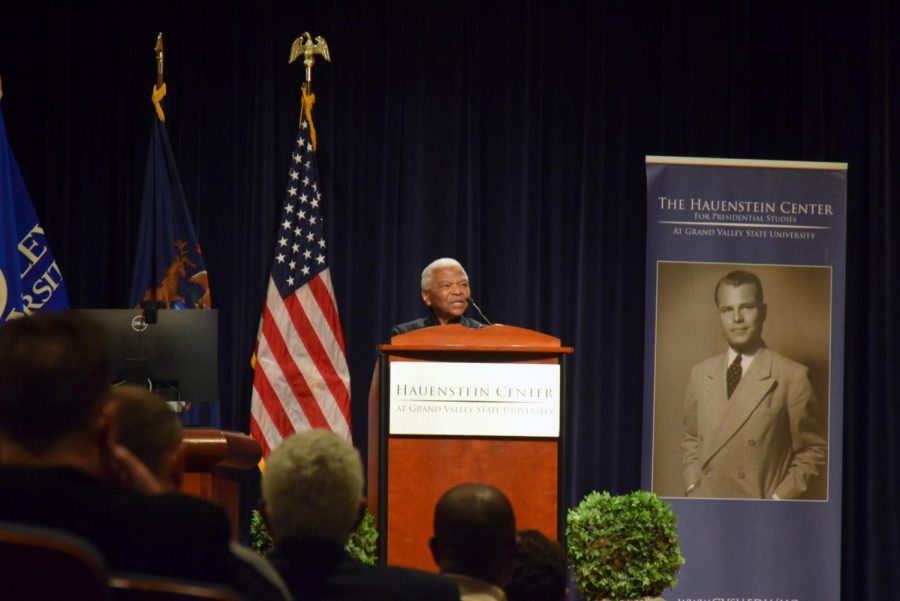MLK event highlights life and legacy of leadership
Jan 23, 2023
For this year’s Martin Luther King Jr. Day Celebration, Grand Valley State University invited Dr. Mary Frances Berry to speak. Berry, an academic and activist for civil rights, who was the Chair of the United States Commission on Civil Rights from 1993 to 2004, spoke about the importance of MLK’s work and his impact.
Berry commented on the current political landscape and said there needs to be effective leadership both in the U.S. and around the world.
“In our country, we often have to pick between the lesser of two evils,” Berry said. “I am so sick of this. I would like to, one time, pick someone who we think can actually help us to achieve the goal of having effective leadership in this country.”
The civil rights movement of the 1950s and ’60s not only shaped King into the leader he became but also helped influence the way he viewed the world at large.
“People of all kinds became leaders through the process of movements,” Berry said. “MLK became a better leader through the process. Events occurred and he rose to the challenge.”
Berry said MLK’s leadership was not something he was born with – rather, Berry said, the civil rights movement and action allowed King to become the leader he was. Berry’s speech detailed the life of MLK, and how his surroundings and the times he lived in helped shape who he was and what he fought for during his lifetime.
“King wasn’t on this earth long enough,” Berry said. “But he evolved in important ways that are lessons for us on what to do about the social problems and enduring problems that still beset us.”
While King’s methods seemed ineffective to some at the time, Berry said his perspective changed over the years, especially after coming up against the massive opposition he faced.
“The only thing MLK did was he wanted to align reality, the world in which we lived, with the great documents of our natural life, the declaration of independence and the preamble of the constitution,” Berry said.
She said in King’s youth he was a much different person than the one who “battled” with Presidents Lyndon B. Johnson and John F. Kennedy. She said his mindset changed over time.
“He believed if you got the right to vote for everyone, and they in fact voted, he believed that you would not have to protest anymore,” Berry said. “All would be right. That is what he thought (when he was younger), but MLK evolved.”
Berry told a story that highlighted changes in King’s approach. In 1960, when Kennedy told King he could end housing discrimination with “the stroke of a pen,” King was excited and helped support his campaign. Years later, after much inaction, Kennedy invited King to the 100th anniversary of the Emancipation Proclamation, and King responded with renewed purpose.
King allegedly wrote in a letter to Kennedy, “I am too busy to make it. I can, however, send you a pen.”
Though King was always against violence, Berry said he was aware of the immense anger and vitriol his community felt.
“The riots in Watts and Chicago had this effect on him,” Berry said. “He began to change. He thought voting was important, but he also began to promote protest and nonviolent civil disobedience more and more.”
Berry said ultimately, King stood for action over apathy, and stressed how becoming comfortable can be the end of change. History teaches us to resist, and people must act in order to invoke change from those in power. Today, Berry said people are more complacent when it comes to social problems.
“I have people tell me they are concerned about the school boards being taken over in Tennessee, where people are trying to stop them from teaching history,” Berry said. “I tell them that if they don’t organize or have arguments or go to the meetings, they are going to lose, and they are going to have to become comfortable with that racism or sexism or whatever it is. You have to be part of that struggle, you have to fight.”






















